The City of Brussels (BE) & Saint Jean de la Ruelle (FR)
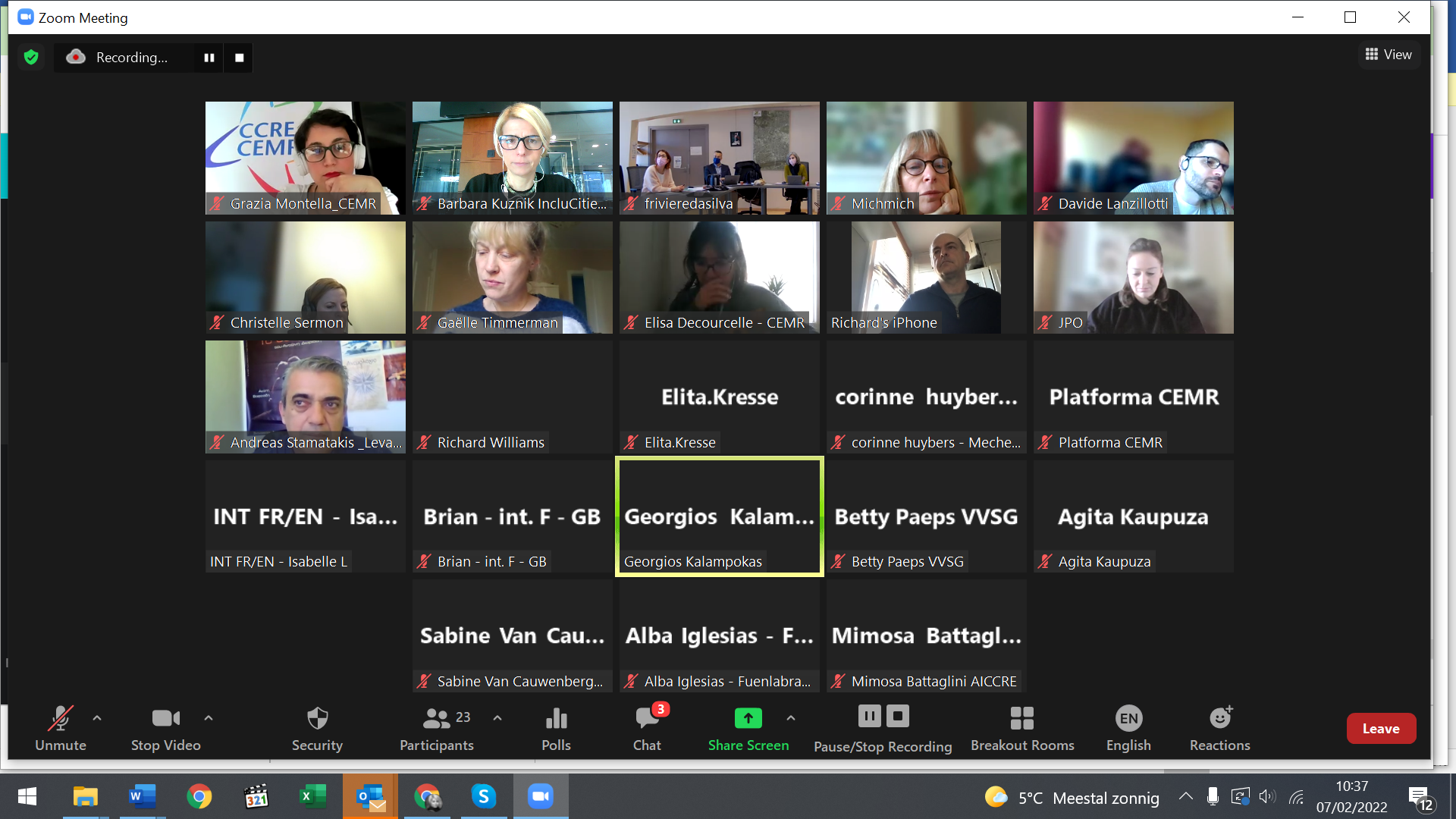
The transfer workshops are the project's internal sessions, where individual mentoring pairs share the state of play and their concrete action plans with other partners. It's a valuable opportunity to learn from each other and exchange knowledge and experience by taking stock of the work done so far. This cross-over exercise enables the IncluCities cohort to act as a team. In addition, participants get insights and inspiration from the associations and all eight cities in a supportive and collaborative way.
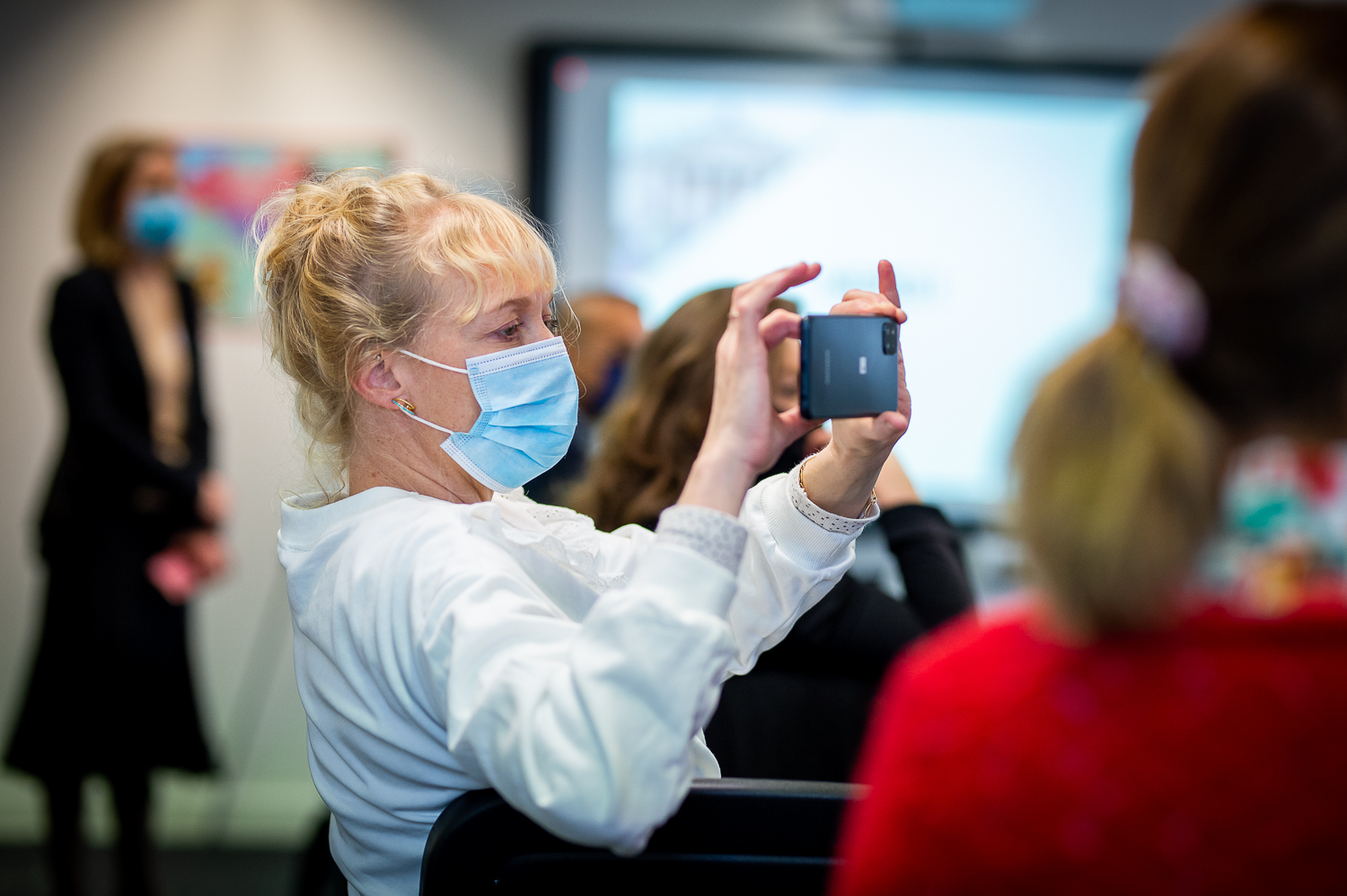
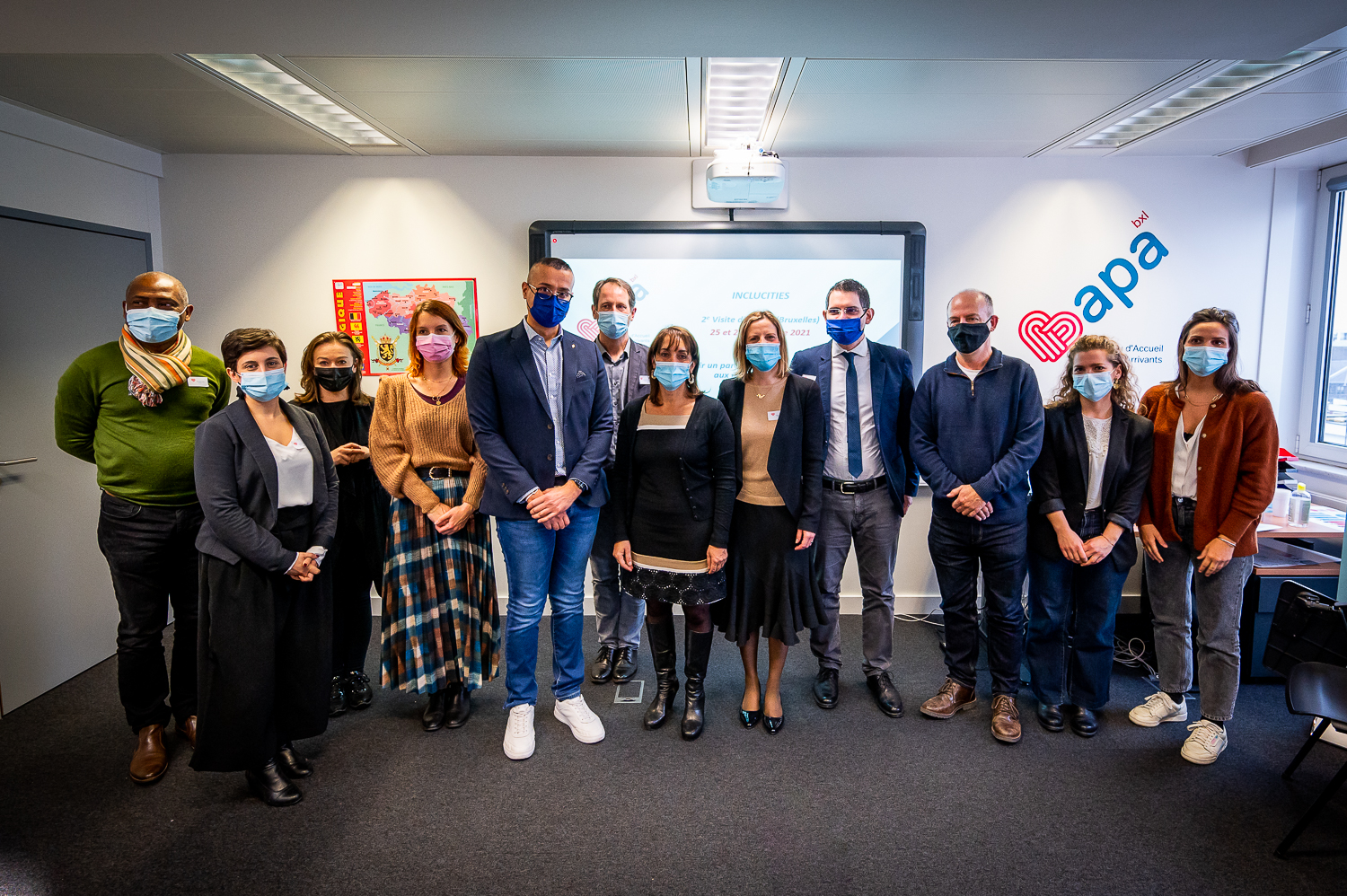
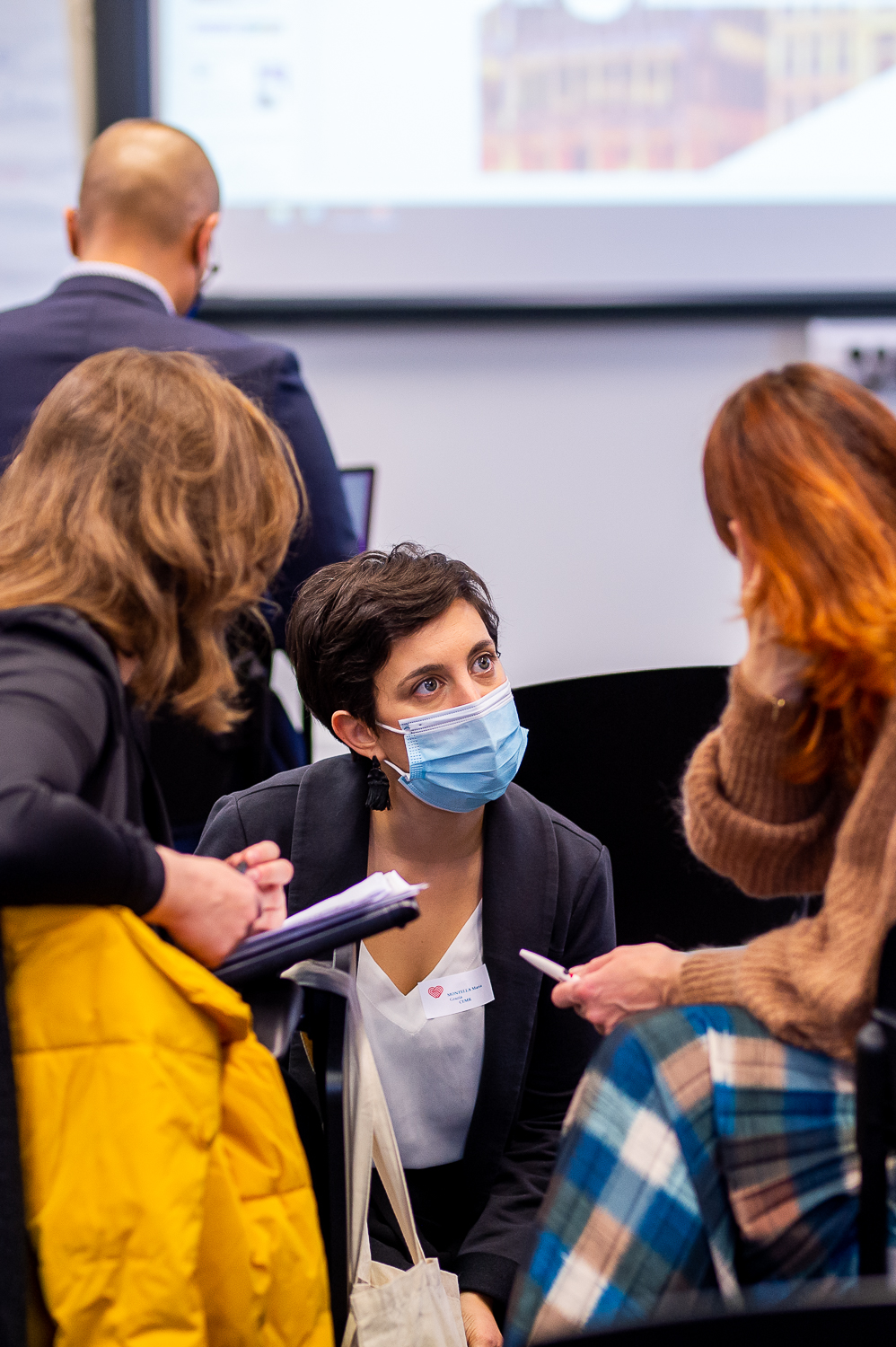
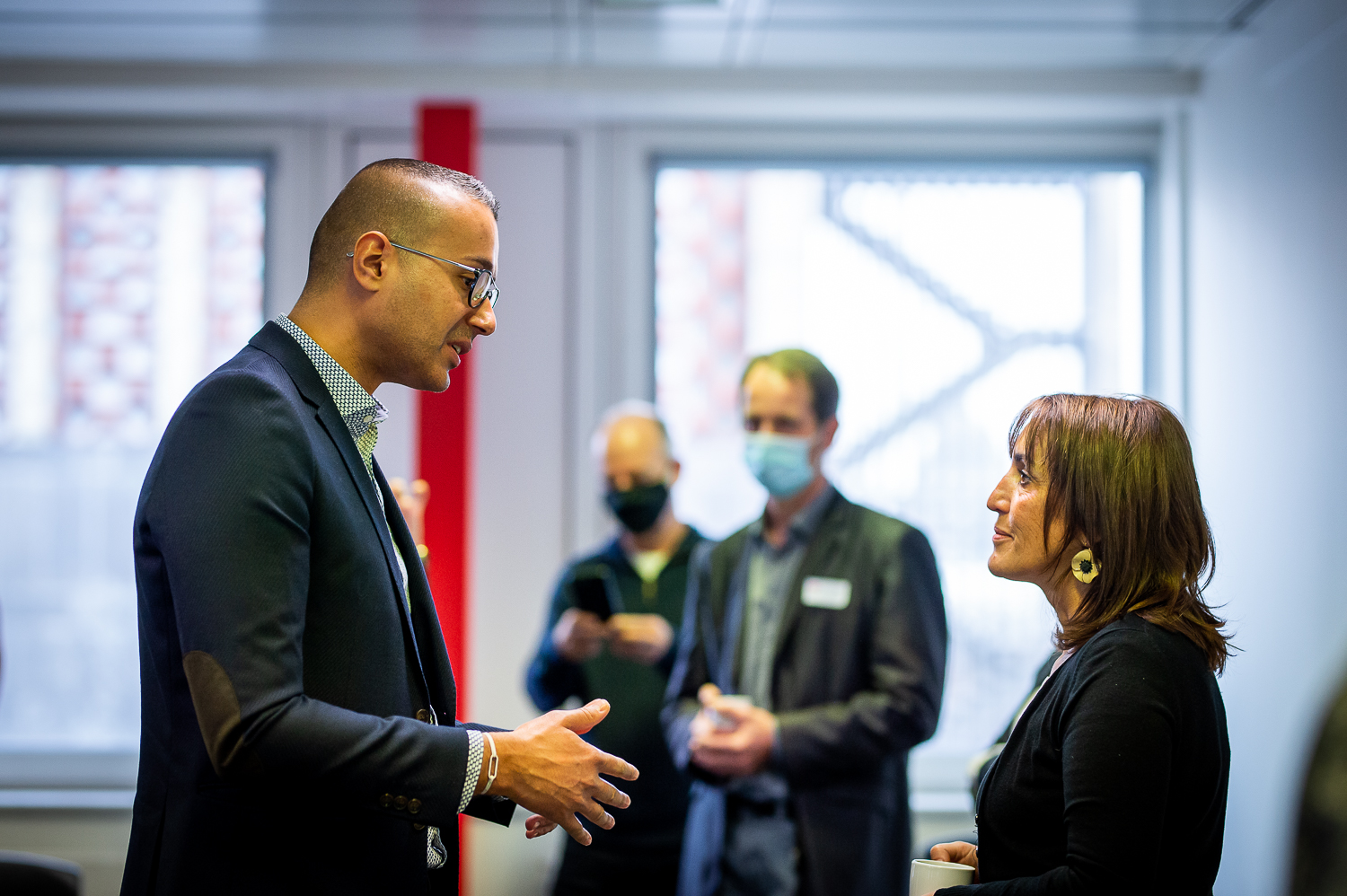
In this transfer workshop, the team from AFCCRE and Saint Jean de la Ruelle (with the support of Brulocalis and BAPA Bruxelles) presented the state of play in their mentoring process.
Following the theme on how to meet the needs of the migrant population with a gender-sensitive response, the City of Brussels already shared their best practices with a special focus on BAPA BXL - The Reception Office for the Newcomers in Brussels. Fabien Riviere da Silva, Deputy Mayor of Saint Jean de la Ruelle talked about the results of this last study visit and indicated the main points from the action plan for Saint Jean de la Ruelle.
Deputy Mayor of Saint jean De la Ruelle, Fabien Riviere da Silva explained the main characteristics of the city: situated about 130km south of Paris, adjacent to the city of Orleans, about 16,500 residents lived in an area of about 6 km². Two priority neighbourhoods were home to a high proportion of its migrant population, which came from 20 countries. Deputy mayor Olivia Bellizio underlined the diversity of communities and the challenge of ensuring their access to public services. Women were the first “victims” of this lack of integration. The staff of the city’s services were not always well informed about migrants’ specific needs, and project participants had identified a need for better training and support.
MigrationWork consultant Richard Williams, who is facilitating the learning exchange, summarised progress to date.
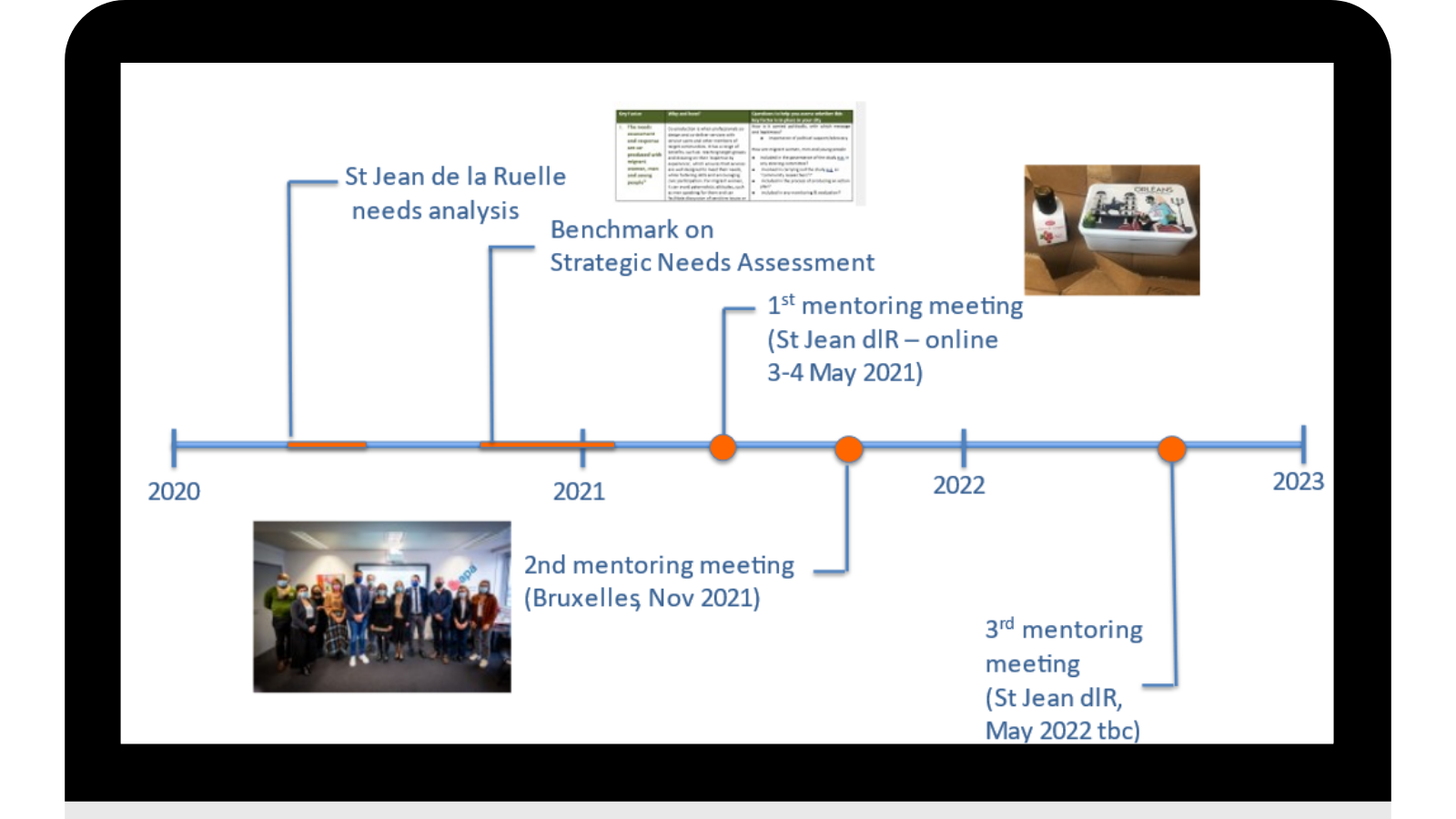
An initial desk-based needs analysis was conducted. Although the French constitution severely limited the gathering of data based on ethnicity, available data showed disparities in outcomes for migrant women and girls, particularly in the area of employment.
Richard had led the development of a benchmark, and then in May 2021, SJDLR hosted the first mentoring visit, sadly online, because of COVID regulations. Preparations for the visit had required reaching out to stakeholders and partners, which had been useful in itself, and the process had identified some key themes to take forward in the next visit to Brussels.
Next on the agenda was the political vision of the mentoring work. Fabien Riviere da Silva pointed out that the next few weeks would be challenging in light of the impending Presidential election in April. The strength of Far-Right candidates underlined the divisiveness of the migration issue, even in an open-minded city like Saint Jean de la Ruelle. That context was associated with cuts to funding for social work. Olivia Bellizio felt that the media’s preoccupation with the Far-Right helped to spread their ideas, so it was crucial to rebut them: local and regional governments needed to take the lead in expressing solidarity.
AFCCRE’s Valérie Loirat described how Saint Jean de la Ruelle had found the IncluCities method useful when developing an Action Plan. The prohibition of gathering data based on ethnicity had been a challenge, but a combination of desk research, discussions and the study visit to Brussels, had led to an increasing focus on migrant women, with an emphasis on intersectionality. The ever more challenging political context in France meant that actions had to be straightforward to implement.
AFCCRE was keen to learn from others how they dealt with a political and social environment that did not welcome migrants.
Participants from other mentoring schemes offered ideas and expertise. Giovanna from Schaerbeek offered to meet to share the experience of the Women’s Centre in Schaerbeek, while Michèle, from BAPA-VIA, described how their service had been co-created with its client group. It was noted that the SJDLR’s context was very different from Brussels’, with significantly less statutory funding. Nevertheless, SJDLR was determined to include beneficiaries in the process.
In the final session, Richard Williams outlined the next steps toward the implementation of the action plan. The French participants stressed that they wanted Saint Jean de la Ruelle to be an example of good practice. Many associations and women were already involved in tackling violence against women, and they wanted to reach out to other stakeholders. The project needed to be approved by the City Council, but they were confident that it would move forward soon.
Read the full report from the Transfer Knowledge Workshop.
Check how BRULOCALIS documented the second study visit of this mentoring pair back in November (Brussels).

